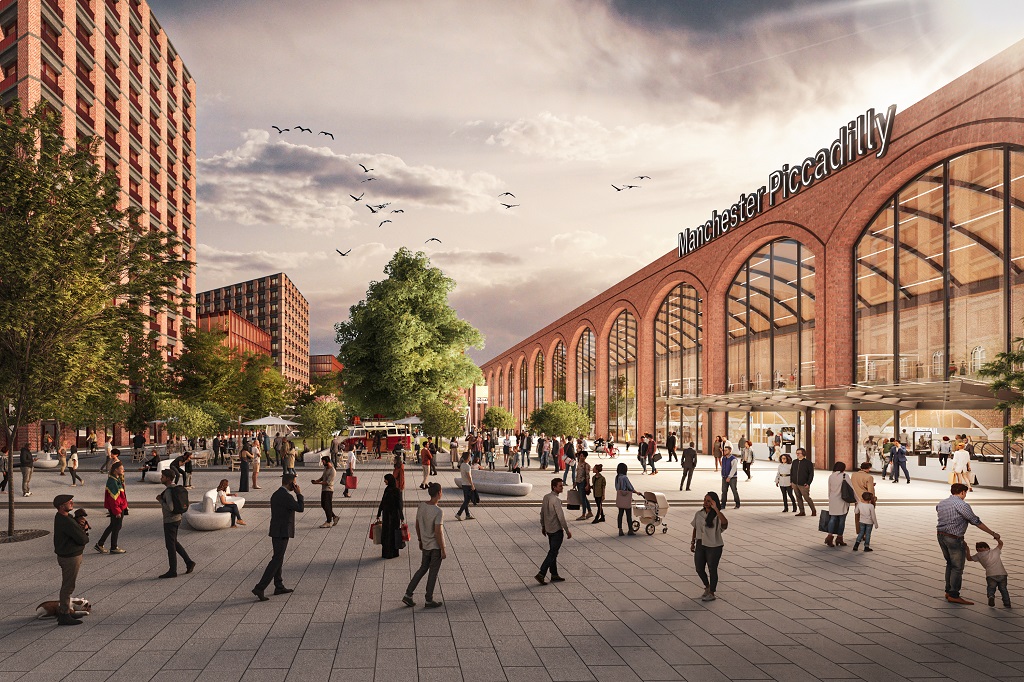NW in 2018 | What a Labour government would mean for housing
Following a remarkable general election campaign and declining Conservative support, there is a very real possibility that we may have a Labour government within the next year, writes Rebecca Eatwell, managing director of Newgate Communications.
So, what would that mean for the housing sector? Labour pledged in its general election manifesto to build more than a million new homes. It sounds great but the issue with housebuilding is not about setting targets – which Governments invariably miss – but about tackling the barriers to delivery.
The Labour party wants to create a new Department for Housing to address the housing crisis. What this would look like and how it would deliver against the ambitious targets remains to be seen.
What we could expect is investment and new powers to increase Council house building programmes. Corbyn has pledged to remove restrictions and begin the biggest council building programme for at least 30 years. There would undoubtedly be stricter targets for affordable homes. If Mayor of London Sadiq Khan’s ambition for 50% affordable is anything to go by, this could have wide reaching implications for developers across the North West.
Greater Manchester Mayor Andy Burnham swept to victory on a pledge to build more affordable homes and has already reportedly come to blows with Manchester City Council over its strategy to build upmarket homes in the centre and cheaper homes elsewhere.
Many towns and cities across the North West have been transformed by private-led regeneration schemes. But this could all change under Labour with Corbyn pledging to stop regeneration leading to the ‘gentrification’ of an area. He plans to compel councils to ballot all tenants and leaseholders before any regeneration can take place and give all tenants on a redeveloped site the right to move back to the same estate, on the same terms and conditions. There will be many concerned that this will kill some regeneration schemes off before they’ve even started.
Corbyn has also pushed back against foreign investors – an issue which has been high up the agenda in Manchester. Earlier this year developers Capital & Centric garnered national attention and queues round the block when they gave local people ‘first dibs’ on their Crusader scheme near Piccadilly.
Perhaps the most controversial announcement was Shadow Chancellor John McDonnell’s party conference speech where he outlined Labour’s intention to nationalise various industries, including construction, which according the CBI would see investors ‘running for the hills’. Elsewhere at conference, there were some pretty strong commitments made including rent controls in cities, a tax on landbanking by big developers, and forcing slumlords to bring their homes up to scratch.
There is a lot in Labour’s proposed policies that could cause concern for the housing sector, however maybe a radical approach is what the industry needs? Shadow Housing Minister John Healy has said that the 2017 Manifesto holds true but, as with any party in opposition, the reality of Government may see some of it watered down.
What’s important now is for the industry to provide the perspective of the business community as Labour works up its agenda for Government so that if Corbyn manages to pull off one of the biggest turnarounds in history we can all move forward in tackling the housing crisis.
The North West in 2018 series features guest contributors looking ahead to next year and is published throughout December.





Think Cuba, but without the sunshine; so insulated shanty towns is probably what you’re looking at.
By Fidel
A labour government lead by Corbyn would collapse the economy in less than two years in charge! It’s the workers and business that would suffer the most
By Stuart wood
Stuart Wood – you sound scared, like you’re trying to plant your assertion in people’s minds as a fact??
Why do you say a labour gvt lead by Corbyn ‘would collapse the economy’?
I’m starting think the whole property and construction industries are biased due to the huge numbers of white middle class men and women working in them.
What would be so disastrous about affordable homes in city centres, for example? Sure, land owners may have to accept lower land values, developers less profits – so what?
We all know developers wouldn’t just shut up shop completely. But of course that’s the impression they want to give!
By Open Minded One
The point is that if council restrictions on borrowing were relaxed and Right to Buy ended councils wouldn’t need private sector money or lead to “regenerate” estates. They could manage and refurbish / redevelop with a long term view and bring in private sector around the edges or infill to create more mixed tenure. I’m amazed the author of the piece thinks this is “radical” and causes “concern” to the development industry. Concern that they may have to work hard instead of just turning up and knocking out any old rubbish for a 20% easy profit maybe ….but if you think regeneration has to involve making people and existing communities better off and more stable than about return on capital then this rebalancing is welcome.
By Sceptic